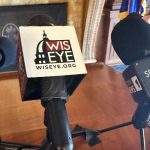Judge Sumi voids Wisconsin Act 10
Dane County Circuit Court Judge Maryann Sumi ruled today that the Joint Committee of Conference violated the Wisconsin Open Meetings law when it passed the budget repair bill limiting public employee bargaining rights on March 9, thereby voiding the subsequent law signed by Gov. Scott Walker.
The ruling was released just before 10 a.m. and takes up 18 pages. Much of it provides a timeline as to the actions of the Republican Senate and Assembly leaders on March 9, the day of the infamous Joint Committee of Conference.
Sumi is clear in her opinion that the legislative leaders violated the open meetings law by not providing the 24-hour notice required for a meeting or even meeting the two-hour notice allowed for “good cause.”
Sumi noted that a variety of violations occurred on March 9 through an intricate timeline.
- 2:02 p.m. Senate meets to call a special session Joint Committee of Conference to negotiate the differences between the approved Senate and Assembly versions of the bill. The Senate bill had all the fiscal items removed from it, so the 20-member majority was unnecessary to approve the bill. During the time, the 14 Democratic Senators were in Illinois to stall passage of the bill.
- 3:30 p.m. Senate Chief Clerk Robert Merchant tells the Senate leadership that no advance notice is needed for the joint committee since both the senate and assembly are in special session. At approximately the same time, the Senate Parlor is being prepared for the meeting. Only 20 seats are available for the public in this room. Sumi notes another room in the capitol where Joint Finance Committee hearings are typically held is available.
- 4:18 p.m. An email is sent to a pre-determined list of legislators noticing the Joint Committee of Conference.
- 4:24 p.m. A notice is sent the The Wheeler Report, a news organization that is used by journalists covering Capitol events.
- 5 p.m. The meeting notice is uploaded to the Capitol website, soon to be followed by a phone call from a Senate staffer to ensure the notice would be appear on the site prior to 6 p.m.
- 6:03 p.m. the Joint Committee of Conference is called to order with Republican Sens. Scott Fitzgerald and Mike Ellis and Reps. Jeff Fitzgerald and Scott Suder in attendance. Democratic Sen. Mark Miller was present via phone and Rep. Peter Barca was in the parlor. Barca repeatedly objected to the meeting on the grounds of open meeting violations.
- 6:06 p.m. Barca begins to read the Open Meetings Law from the statutes, but is cut off on minute later as the roll is called. The revised bill is without fiscal items, but still contains the restrictions on collective bargaining passes the Joint Committee.
- 6:14 p.m. The Senate (without the Democrats) passed the bill approved by the Joint Committee of Conference on an 18-1 vote. Sen. Dale Schultz (R- Richland Center) votes no.
On March 10, the Assembly reconvenes to pass the newly approved bill from the Senate with the changes approved by the Joint Committee. It passes on a 53-42 vote. Walker signs the bill into law on March 11, leading to the expiration or termination of all state employee union contracts on March 13.
Sumi ruled the Joint Committee of Conference is a governmental body, subject to the Open Meetings Laws and that there is nothing in the Joint Rules of the Legislature that overrides the compliance with those laws. She noted the language in the law that requires “the doors of the each house be kept open except when the public welfare shall require secrecy.”
There was testimony during the lawsuit before Sumi that the Senate doors were locked around 6 p.m and that announcements were made in the Capitol prior to the meeting to clear the building. She said those actions were in violation of allowing public access to the meetings.
She also opined that judges do have the authority to determine whether the Legislature followed the Open Meetings Law because it is allowed in State Statute 19.97 and Article IV, Section 10 of the Wisconsin Constitution.
Sen. Chris Larson (D-Milwaukee) was in Illinois when the aforementioned events occurred and he was pleased with Sumi’s ruling.
“We’ve been saying this from the beginning,” Larson said. “It just shows that the Republican leadership did a power grab on this.”
He also reminded the public that Judge Sumi, even though a Dane County Judge, was appointed by then-Gov. Tommy Thompson, a Republican.
“She is not a liberal; she used the fair treatment of the law in her ruling,” Larson said.
There have been rumors from the start of the lawsuits against Act. 10 that the Legislature could just reopen the issue and redo the vote to eliminate the questions of the open meeting violation.
Larson doesn’t know if that will happen, but he hopes his GOP colleagues won’t bring the bill back since the original fiscal problems given for the bill have been negated by the possible $600 million in surplus recently discovered.
“That whole premise is gone and this bill would just continue to divide the state,” he said. “If they do come back with it, we (the Democratic caucus) will work to remove the collective bargaining restrictions. They got the monetary concessions from the unions, they should leave the middle class alone.”
The WI Supreme Court had scheduled a hearing on an appeal to this lawsuit for June 6. It is not known if that hearing will continue as scheduled or be postponed.























There’s no doubt the Walker cabal will press appeals all the way to the State Supreme Court, where they have a co-conspirator in David Prosser. The interesting thing to watch for is where the money comes from to support that legal campaign. The Koch Brothers? The DeVos tribe? American Crossroads GPS? Or some other well-heeled corporate front for traitors, criminals and foreign interests?
Are there any consequences for breaking this law other than invalidating the legislation? I mean, if I park on the wrong side of the street some nights it costs me $45, you’d think there would be **some** sanctions against blatant corruption in government.
Of course, the GOP controlled legislature could simply bring that bill up again – legally this time – and pass it again. But that would mean sticking their necks out [again] on what has become a very contentious issue. I’m sure they never expected to get so much flack on their push to shove this through quickly, and once more dragging the whole mess out into the public view can’t be a very attractive proposition. It will certainly add fuel to the recall efforts…
Gee, do I ever feel sorry for them!
It’s refreshing to see news such as this continually featured on TCD. Sadly, too many people tend to rely on more traditional sources rather than forming their opinions based on a broader and more diverse spectrum. Thank you Patti.
We are a representative democracy not a libertarian paradise like Somalia. The Republicons do not like this and will do anything to take power for money, and take money for power. They are barbarians devoid of concern for others. Even the Vikings became civilized- perhaps someday the Republicons will also but don’t hold your breath.
Of course the legalities must be handled however the Dems departed and left little choice. Not surprising that ravenous angry dems would blast Scott Walker here. He’s true to his word which is more than I can say of most politicians.
Read my blog on Wauwatosanow.com: http://www.wauwatosanow.com/blogs/communityblogs/122428499.html
ATTENTION READERS: May 23, 2011 issue of the New Yorker Magazine has a superb feature (“objection” by Jill Lepore). You can read all about a trial in Oshkosh that pitted The Paine Lumber Company against workers who went on strike. Speaking eloquently for the defense was Clarence Darrow. The final paragraph of the piece reads thusly: “Just this past March, Scott Walker, the Republican Governor of Wisconsin, signed a law making public sector collective bargaining a crime.” I highly recommend this article…
Thank you!